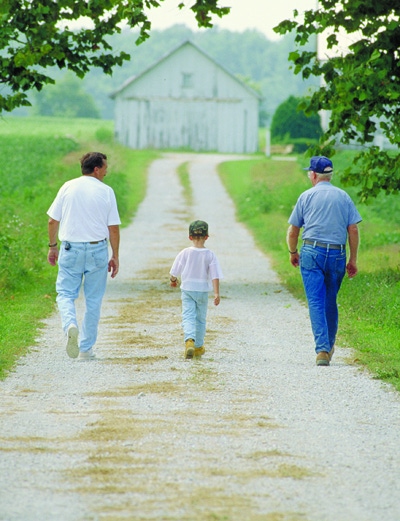
One of my favorite groups to work with over the years is the National FFA’s New Century Farmer. This is a group of young farmers who are actively returning to the agriculture industry and are often involved in production agriculture. This program would not be possible without the sponsorship of companies such as Corteva Agriscience, Case IH, Farm Credit, CHS, and Successful Farming. These companies see the value in investing in the future of the agriculture industry.
The profile is changing
The young farmer of the future is in transition. I quickly noticed the number of females and minorities, which has trended upward in the last decade. Almost 90 percent of the group came from family farms. Over a quarter of the participants were in the fourth-generation of their family farms and eight percent were the sixth or seventh generation.
Farm business organizations
It was interesting looking at the profile of the group and the complexity of the operations that they were involved with. Twenty one percent were operating under an LLC, 36 percent as sole proprietorships, and 19 percent as partnerships. Over half of the participants had grandparents involved in their organizations, 87 percent farmed with their parents, over a third had aunts and uncles involved, and nearly 20 percent were operating businesses with cousins.
Challenges
One of the group’s biggest challenges was family business transition. The group identified three primary frustrations regarding this issue. First, many had grandparents in their 80s and 90s that did not allow the younger generations to see the books or be involved with the financials. What was the organization’s level of profitability? This group did not know. The financial mystery was one of the biggest disappointments for the New Century farmers and it was a highlight of the group discussions. Second, some of the older generations would not allow the youngsters to go to the lender or be involved with the discussions concerning the finances. Third, the secrecy of what is in the will was disappointing for others. It was frustrating for them to invest time and energy without a clear path of the future.
Overall, the group was quite optimistic about the future of agriculture despite some of the recent challenges regarding trade and tariffs and the lower commodity prices. Many participants were engaging in entrepreneurial activities such as grass-fed beef, organic crops, hay, and direct marketing. With enterprises so diverse, the question for the future is whether farmer and rancher terminology needs to be replaced with agri-entrepreneur? Based on my observations, agriculture is going to be in very good hands with a lot of young people that are outside the box thinkers.
The opinions of the author are not necessarily those of Corn+Soybean Digest or Farm Progress.
About the Author(s)
You May Also Like






